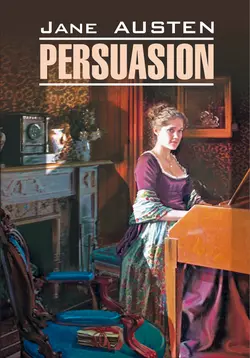Persuasion / Доводы рассудка. Книга для чтения на английском языке

Джейн Остин
Тип: электронная книга
Жанр: Литература 19 века
Язык: на английском языке
Стоимость: 432.00 ₽
Статус: В продаже
Издательство: КАРО
Дата публикации: 18.10.2024
Отзывы: Пока нет Добавить отзыв
О книге: Предлагаем вниманию читателей роман английской писательницы Джейн Остин «Доводы рассудка». Роман многократно издавался, переведен на многие языки мира, по нему снято несколько художественных фильмов и телесериалов.